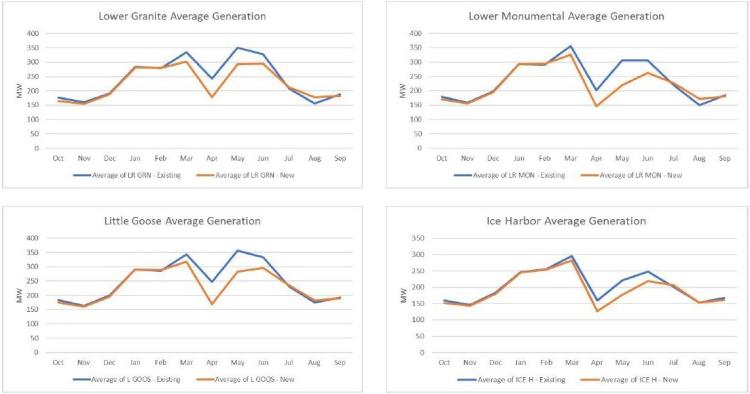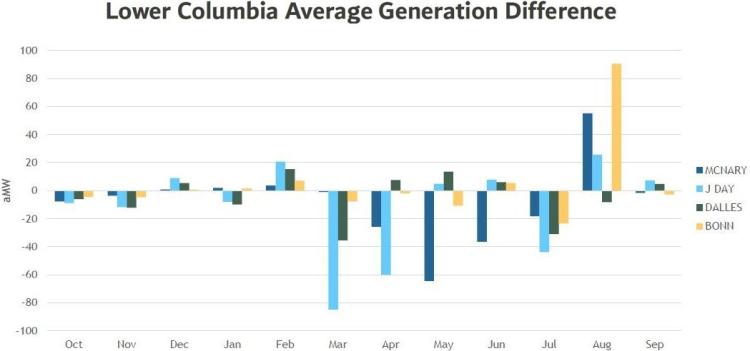By Peter Jensen
Last December, the U.S. government reached an agreement between the Nez Perce Tribe, Confederated Tribes and Bands of the Yakama Nation, the Confederated Tribes of the Warm Springs Reservation of Oregon, and the Confederated Tribes of the Umatilla Indian Reservation, as well as the states of Oregon and Washington. One portion of this agreement was a commitment to modify hydropower operations on the lower Snake and lower Columbia, providing more hours of spill in the spring (April, May and June) and curtailing spill operations in August. In preparation for an upcoming adequacy assessment, Council staff incorporated these changes in modeling to understand the impact to power generation, and to provide the most up-to-date and relevant information to the region.
While the system-wide drop in annual hydropower production will be marginal - estimated to be approximately 80-85 megawatts - there will be less generation in the spring, particularly among the four lower Snake River dams. More generation will occur in the lower Columbia River dams in August and September, according to the analysis.
In preparation for the upcoming 2029 adequacy assessment and the Council's ninth power plan, the Council implemented these changes in its hydro model (GENESYS). Manager of Planning and Analysis John Ollis and Power System Analyst Dor Hirsh Bar Gai presented their analysis to the Council's Power Committee during its May 14 meeting in Portland (watch video).


"From a regional perspective, adequacy doesn't appear to be negatively impacted," Hirsh Bar Gai said.
He said the modeling projects minor increases in use of natural gas-fired power production in the short term, particularly at night. It also expects greater use of out-of-region market purchases in the spring months, but increased exports in the winter months.
The analysis estimated impact on costs and found the overall effect to be a decrease, although the picture is nuanced. While the higher spill and decreased generation in the spring will carry higher costs (due to higher operating costs for the thermals), that will be mitigated by increased market revenues and decreased market costs in the summer months.










